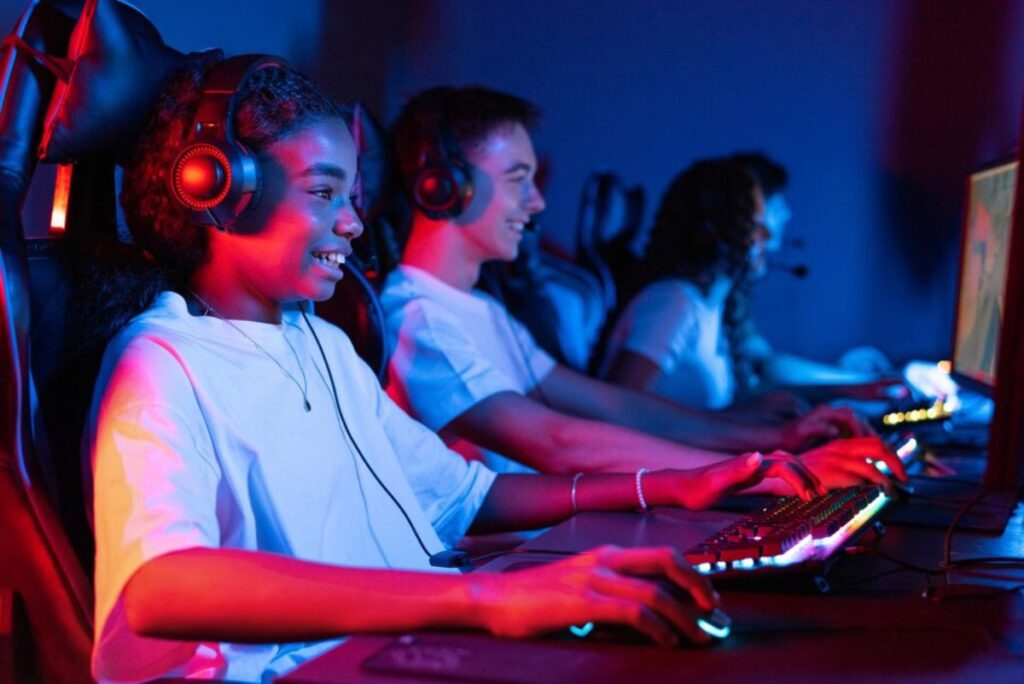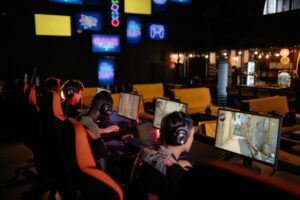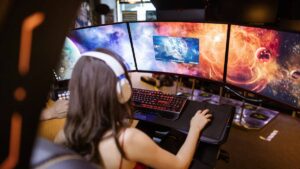The Gaming Blog

The Rise of Gaming Communities and Their Impact
More Than Just a Game
Gaming today is about far more than high scores and flashy graphics. It’s about connection, collaboration, and community. Whether you’re a casual mobile player or a dedicated PC enthusiast, there’s a good chance you belong to some form of gaming community. Digital tribes, like forums, Discord servers, competitive clans, and fanbases, influence our play style, communication, and identity.
The rise of online gaming communities has fundamentally transformed the landscape of modern gaming culture. With the explosion of titles like Fortnite, League of Legends, and Minecraft, gamers are no longer isolated players. They are now active participants in shared virtual experiences. This change has improved the social side of gaming. It has also started movements, shaped game development, and launched careers.
This article looks at the strong impact of gaming communities. We’ll see how they’ve changed, how they affect player behavior, and their good and bad effects. We’ll also discuss what the future may bring for gamer culture.
The Evolution of Gaming Communities
From Local Arcades to Global Networks
Gaming communities have come a long way since the 80s arcade scene. Back then, camaraderie formed around local high-score leaderboards and face-to-face challenges. Today, platforms like Twitch, Reddit, and Discord connect millions of gamers across continents.
Key milestones in community development:
- LAN parties in the 90s: The birth of in-person multiplayer bonding.
- MMORPG guilds: Titles like World of Warcraft introduced structured teamplay.
- Online forums and fan sites: Spaces like GameFAQs and NeoGAF created information-sharing hubs.
- Streaming platforms: Twitch and YouTube Gaming foster real-time interaction and fandom.
These milestones reflect how gaming has shifted from a solitary experience to a socially interconnected phenomenon.

The Role of Technology in Community Growth
Broadband internet, mobile tech, and social media now make it easy to connect with similar players. You can always reach your gaming network with cross-platform multiplayer, cloud saves, and mobile notifications. Just a tap away!
Why Gaming Communities Matter
A Sense of Belonging
At their core, gaming communities provide a sense of identity and inclusion. In many cases, they offer a haven for individuals who may struggle to find community elsewhere. Players form bonds over shared experiences, in-jokes, and collaborative victories.
Crowdsourcing Knowledge
Need a guide to beat that boss or optimise your gear loadout? Chances are, a fellow gamer has already shared a detailed post or YouTube tutorial. These knowledge-sharing networks make difficult games more accessible.
Peer-to-Peer Learning
Players often learn from each other. They pick up game mechanics, improve team strategies, and develop communication skills together. Esports teams, in particular, thrive on this model of collective improvement.

The Positive Impact of Gaming Communities
Mental Health and Emotional Support
Contrary to the stereotype of the isolated gamer, online gaming communities often provide critical emotional support. Reddit and Discord have mental health channels. Gamers can chat openly and find support there.
Real-world example:
- The subreddit r/GirlGamers has been praised for offering a safe space in a male-dominated space.
- Minecraft servers have run support sessions for players with anxiety or depression.
Fostering Creativity and Innovation
Communities are fertile ground for creative expression. Players are always expanding on the original source material. They create game mods, fan art, machinima videos, and cosplay collaborations.
Career Building and Networking
With the growth of streaming and esports, community engagement can be a stepping stone to a career. Many professional gamers, casters, and developers got their start as active community members.
The Dark Side of Gaming Communities
Toxicity and Harassment
Unfortunately, not all gaming communities are welcoming. Toxic behaviour, trolling, and harassment push players away. They make places feel unsafe, especially for women and marginalised groups.
Notable incidents:
- The Gamergate controversy revealed how deep harassment could run in online spaces.
- Popular streamers and developers have spoken out against hate raids and doxxing.
Gatekeeping and Elitism
In some communities, experienced players look down on newcomers. This “git gud” mentality can discourage fresh players and stifle diversity in the player base.

Community-Driven Game Development
Developer Feedback Loops
Today, developers frequently engage with their communities to shape the direction of games. Feedback from players often influences patches, expansions, and sequels.
Example:
- No Man’s Sky changed a lot because of community feedback. It went from a criticised launch title to a loved sandbox game.
Modding and User-Generated Content
Games like Skyrim and The Sims have thriving modding communities that keep them relevant years after release. Studios now recognise this as a valuable form of content generation.
How Brands and Influencers Shape Communities
The Role of Content Creators
Streamers and YouTubers often act as community leaders. Their opinions, gameplay, and interactions can shape the culture around a game.
Corporate Engagement
Brands sponsor tournaments, run in-game events, and engage with players via social media. This interaction fosters loyalty and often drives marketing success.
Statistic:
- A 2024 Newzoo report found that 63% of gamers trust influencers more than traditional ads when making purchase decisions.
The Globalisation of Gamer Culture
Gaming communities now span borders. Cultural differences may exist, but passion for games transcends language barriers. Events like Gamescom, EVO, and The International unite global audiences.
Cross-Cultural Trends
- K-pop stars are streaming games in Korea.
- Brazilian esports teams are becoming global sensations.
- European roleplaying servers are attracting international players.
Conclusion: The Power of Play
Gaming communities are more than a by-product of online connectivity. They are the beating heart of modern gamer culture. These communities have changed how we see play. They offer friendship and support. They also drive creativity and push game development forward.
Despite issues like toxicity and elitism, the main trend is inclusivity, collaboration, and empowerment. As games continue to evolve, so too will the communities that support them—becoming even more diverse, creative, and impactful.
When you look for teammates, share fan art, or join a Discord channel, keep this in mind: hitting “Join” means you’re stepping into something much bigger than just a game.
Ready to connect? Find your gaming community, join the conversation, and be part of the next evolution in gamer culture.









